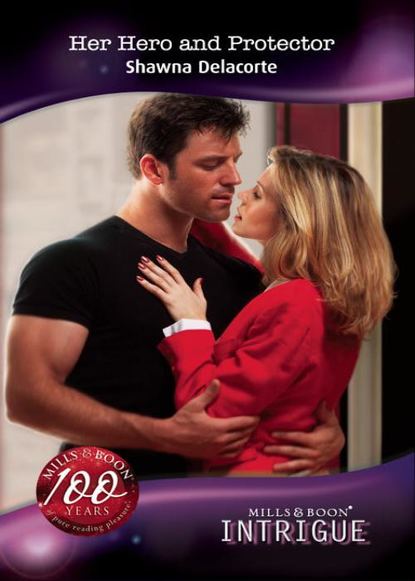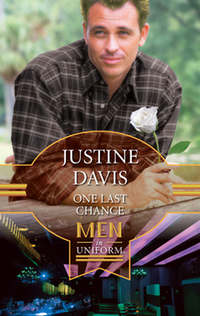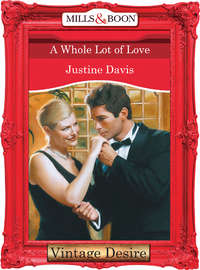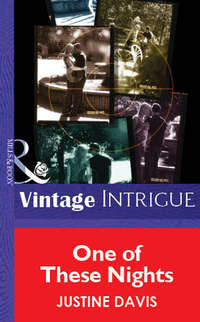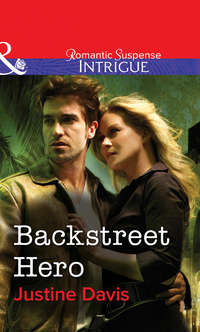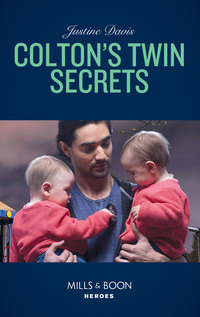
Полная версия
Colton Destiny
At least the locals were easy to spot, with their distinctive dress. And while she could hardly ignore the visitors—it was, after all, entirely possible their perpetrator had come here in that guise—for now she would focus on the locals and what they knew or had seen.
The Amish trait of ignoring or spending little time thinking about the foibles of their English neighbors was going to make this difficult. Most of the time the behavior of outsiders truly was ignored as having no import. But what she needed was exactly that, information about anyone who had acted oddly, differently. That this description fit most English to this community wasn’t going to help matters.
Emma started to walk, observing, wanting to get the feel of things. This small commercial section of the village had grown a little since she’d last been here, nearly ten years ago. The bakery was still in the same place and still putting out those tempting aromas. A cheese shop had been set up between the bakery and the quilt shop. And beyond that, a flower shop that was full of beautiful, healthy-looking plants.
Everything looked normal. Prosperous.
And yet she felt the tension, barely under the surface. The tourists and shoppers were, naturally, oblivious, but the locals all seemed distracted, as if their thoughts were elsewhere. As she had expected, the abduction of three young girls had traumatized this small community.
She kept walking, looking around. She crossed a narrow alleyway, which, if she recalled correctly, had once marked the end of the small shop area. The next building was a large brick edifice that had, she thought, searching her memory, once been a mill of some kind. But now it appeared only one corner was occupied, remodeled to add a large corner window.
She slowed to a halt before that window. In the top part was, oddly, a birdhouse, she supposed for the martins farmers so prized. But what drew her was the sideboard displayed there. The piece fairly glowed in the late-fall sun, burnished to a smooth, flawless finish, no doubt by hand. Every corner, every angle was perfectly crafted. The wood was rich with grain and clearly selected with care. Each piece mirrored the one before, so that it was clear you were seeing the progression of the tree itself. The overall effect was an incredible melding of nature’s symmetry and man’s skill.
If there wasn’t a good, solid mid-four figures on that price tag, there should be, Emma thought. If not for a closed sign on the door, she’d go in for a closer look. This was the most gorgeous piece of furniture she’d ever seen, and she was already mentally rearranging her apartment to make room for it.
Her gaze shifted, and she realized there was someone in the shop despite the closed sign. A man, in the back, standing near what had to be another window. Probably, she guessed, looking out at the stand of trees to the rear. The sun was at a sharper angle this time of year and poured through that window like a floodlight. It illuminated him as if he were on a stage.
And he could well have been on a stage, for he was a strikingly handsome man. Tall, at least a couple of inches over six feet. Lean, yet well muscled. And the sunlight lit up his features, strong jaw and brow, perfectly cut nose, and a mouth that looked as if it would be softly sensual were it not drawn into a compressed line at that moment. His hair was dark and gleamed in the light streaming over him.
She didn’t know how long she just stood there, staring. She wished she had a camera in hand, or that she could draw or paint, for this was a scene worth preserving. Standing there, awash in the soft light of dusk, with that stern, almost pained expression, he stirred feelings in her that she didn’t understand yet couldn’t deny.
He was as beautiful as the piece in the window, and she knew instinctively he was the maker.
And she had turned into a ridiculous gaping female at the sight of him.
This was not a good way to start her investigation.
“May I help you?”
The polite, child-pitched voice had yanked her out of her silly reverie. She had looked down at the child standing beside her, sheepishly aware she hadn’t even noticed the girl’s approach. Bright blue eyes looked back at her, and she saw dark hair pulled under the traditional head covering.
“This is my father’s shop,” the girl had explained. “He makes the best furniture in the world.”
“Does he?” She couldn’t help smiling.
Color stained the girl’s cheeks, adding color to the pale porcelain of her skin. “He would never say such a thing—it’s vain—but I think I can say it for him.”
The simple words had reminded her better than anything else could that she was back among the people who had so fascinated her when she was this child’s age.
“And who is your father?”
“Caleb Troyer. He’s right in there.”
Emma’s breath caught. This man, who had so captivated her, who had her standing here in public staring as if she’d never seen a man before, was Caleb Troyer? The brother of the kidnapped Hannah Troyer?
“And you’re …?”
“Katie Troyer,” the girl said.
The oldest, Emma thought, remembering the file that had said Hannah Troyer had three young nieces through her brother Caleb. And that the girl’s mother, Annie Troyer, had died three years ago, leaving Hannah as the main maternal figure in their lives.
“Are you here about my aunt?”
Good guess, or had something given her away?
“What makes you think that?”
“You seem different than the others.”
“Different?”
“You dress plainer. More like us than them. Even if you do wear boy’s clothes.”
Ah, the honesty of children, Emma thought wryly.
“I am from the FBI,” she said. At the girl’s furrowed brow she added, “We’re like the police, only for the whole country.”
“Oh. You need my father, then.”
That simple statement, Emma thought, opened up a whole new set of crazy thoughts.
This, she thought ruefully, could get complicated.
Chapter 3
“Father?”
Caleb Troyer found it odd that here, where they were alone, Katie would use English. Perhaps it had been to get his attention; he could tell from his daughter’s voice that this wasn’t the first time she’d called him. With a smothered sigh he slapped his hat against his leg a couple of times, as if the slight blows could shake him out of this mood. He was losing patience with himself, slipping into useless, unproductive states of daydreaming, staring out the windows of his workshop, wasting precious hours that should be spent working.
But how could he work thinking of Hannah, lively, irrepressible Hannah, out there in the other world, not just in danger of losing her way but having already been grabbed up by the evil that resided there?
Caleb was a strong, competent man, and he’d felt truly helpless only once before in his life. And he couldn’t help thinking of that time as helplessness filled him again. He hadn’t been able to help Annie as she slipped away after laboring so hard and painfully to bring little Grace into the world three years ago. And there was nothing he could do now.
His instincts were to go himself, to search for his impulsive little sister, but he was wise enough to know he would be useless out there, in that vast expanse that was the world of the outsiders, the English. It was full of technology and other things he knew existed but knew little about. He knew nothing of their huge cities or how to deal with the wickedness that flourished there.
He knew nothing of the kind of person who would do such a thing, take a young, innocent girl off the street for purposes so nefarious Caleb couldn’t bear thinking about them. How any man, even an English, could do such things was beyond him.
“Father, please?”
Shaking off the thoughts that had occupied his mind every waking hour since Hannah had been taken, he turned around to face his oldest daughter. As usual, her sweet face both soothed and unsettled him. It was a little easier than it used to be, looking at this beloved child who was such a painful reminder. With her dark hair and blue eyes, she was the living, breathing image of the woman who had been the center of his life since they had been children. The girl he had known he would marry since they had been eleven, the age Katie was now.
Annie had known it, too. When she’d approached him and said “You’re the one,” he’d known exactly what she’d meant. That someday when they were old enough, they would be together.
“What is it, Katie?” he asked, trying to mask the sudden tightness in his throat. And again impatience rose in him. He should be worried about his missing little sister, Hannah, not mooning over a woman who’d died three years ago.
“Someone’s here.”
His mouth quirked at her expression; his already shy daughter looked beyond uneasy. And again his mind shot back to her mother. Annie, too, had been quiet, shy, and only later did he realize what a tremendous certainty she must have had to have approached him that day.
“Deacon Stoltzfus here to chastise me about my beard again?”
The church elder had made it his mission in life to remind Caleb he was going against a basic tenet of Amish life for adult males. As if he didn’t know.
He’d grown his beard, as custom dictated, when he’d married Annie. And when she’d died, in a fit of rage and grief, he’d shaved it off, nearly slitting his own throat in the process. His wife had died because of him, trying to deliver his child. And he hadn’t been able to save her. He didn’t qualify on either front to wear the badge of adult maleness.
So every day he shaved his jaw, those minutes his silent, aching tribute to the woman he missed so much. Without her, he was not a man, and thus he would be without a beard, to the dismay of the entire community.
He waited for Katie to express her usual concern, suggesting he just grow the beard and make the elders happy. Katie was all about making everyone happy, as her mother had been.
“No,” the girl said, her voice oddly strained. “It’s an English.”
Caleb frowned. “Here?”
“A woman.” Katie frowned in turn. “She says she’s from the … the … some initials.”
Initials. That usually meant government. The English had such a need for long, fancy names for their agencies that interfered in the lives of their people.
And then it struck him. Was this about Hannah? Was it some woman from the police? Did she have news? Why else would she come looking for him, specifically, as Katie had said?
He walked quickly toward the doorway of the shop. He laid a hand gently on Katie’s shoulder as he went past her.
“Stay here,” he commanded and stepped outside into the slanting November sun. Whatever the woman might say, he doubted he wanted Katie to hear it. He believed in honesty in what he said to his children, but that didn’t mean they needed to hear every detail. Selective omission, Annie had called it, and he’d known there had been a touch of disapproval in the words. Annie had been completely, albeit compassionately, honest. In her way, she had been tougher than he. She had always found a gentle way to say no or deliver bad news, whereas he would cringe inwardly from the task of being harsh with their girls.
And now it all fell to him.
The sight of the woman waiting outside shook him out of his pained memories, thankfully rattled him out of his self-pity.
She stood in a shaft of sunlight. And the first thing that struck him was the way that golden light struck her hair, firing it to a luscious blend of colors that matched the fiery fall turning of the leaves. Those leaves were gone now, this first week of November, but her hair brought him the same feeling of wonder at nature’s rightness. And the thick richness of it nearly took his breath away. He stopped dead in his tracks.
This was peculiar. Why would her hair affect him like this? It was so unlike Annie’s. Her hair had gleamed like a raven’s feathers. Of course, he never saw it out in the sunlight like this. She had, as a proper Amish woman, always worn her covering in public. A woman’s uncovered hair was for her husband’s eyes only, behind closed doors, where such lust-invoking sights belonged.
But for an instant, as he stared at the red, gold and russet, he wanted to touch it, run his fingers through it, see if it felt as warm as it looked.
He yanked his gaze away, angry at himself yet again.
This is why the covering is a good thing, he lectured himself. And slapped his own hat belatedly on his head.
He realized it was the worry about Hannah that had him off balance. Normally such improper thoughts would have never entered his mind. It had to be that subconsciously he was thinking of his sister’s pure red hair, comparing it to this mixture of brown and red and gold that seemed somehow warmer to him. More earthy, as if she were connected to the land, unlike Hannah, whose temperament had always made him fear they would lose her to the outside world.
And now, they had. But not by her choice. The grim reality bit deeply, and he forced himself to focus.
He must have been acting very strangely, for the woman was staring at him. His stomach flipped oddly at the thought that she might have realized his thoughts at the sight of her hair in the sun were not those of a properly raised and trained Amish man. And he could not blame her, not really. For an Englishwoman she was actually very conservatively dressed. Even that hair was, if not under a prayer covering, at least pulled back into a severe style that was less blatant than most. Not that it seemed to lessen the effect, since his second thought after the striking color had been what it would look like down around her shoulders.
But he noticed also that she wore no jewelry, no necklace, no earrings, no rings. He wondered suddenly if she had dressed so, fixed herself so, out of some idea of respecting their traditions or if she was always this unadorned.
And if the absence of a wedding ring, in the English manner, meant she was unattached. Not that it was any of his business. Telling himself firmly the manners and dress of an outsider mattered less than nothing, he walked toward the woman.
“Mr. Troyer?”
Her voice was low, almost husky, and for a moment that quashed reaction threatened anew. For she was closer now, and her eyes were a vivid meadow-green unlike any eyes he’d seen before. That green, plus the reds, golds and browns of her hair … She seemed like some woodland creature, a creature of the earth, the land, who—
He jammed his left hand into his pocket, curling his fingers into a fist, letting his fingernails dig into his flesh. He welcomed the pain; he was obviously out of control with worry, and he needed to focus.
“I am Caleb Troyer,” he said formally.
“I’m Emma Colton, with the FBI.”
Her voice was brisk as she held up a leather folder with identification. From what he could see from the photograph, she dressed like this regularly. Her hair was even more severely styled, pulled into a knot on her head, tidy except for a few rebellious strands. So she did not use that amazing hair to draw attention to herself. If anything, she seemed to be trying to avoid any acknowledgment that she was female.
Wondering why his usual stern control of his thoughts had deserted him, Caleb tried again.
“You are here about Hannah.”
“Yes, sir. I’m from a field office in Ohio, where, unfortunately, there have been similar cases of Amish girls gone missing.”
He nodded. “I was told by the detective from Philadelphia.” His dark brows furrowed. “His name is also Colton.”
“Tate is my brother.”
Caleb’s brows rose. “He did not mention that. But you are with the FBI, not the police.”
She answered the implicit question with a shrug. “He asked me to come.”
“And so you did?”
“Of course.”
He liked her answer. Then, his head tilted slightly, he asked, “Then you are Dr. Colton’s sister?”
Dr. Derek Colton, whose office was just down the street from the store that sold much of Caleb’s handcrafted furniture, was well-known in the Amish community. He was more than generous with his time and care, and seemed to take a special interest in seeing his Amish neighbors stay healthy. He was a good, solid man, and of all the English Caleb dealt with, he thought Derek Colton the most reliable and trustworthy.
“Yes, Derek’s my brother,” she said. “And before you ask, yes, I’m adopted, too. We all are. All six of us.”
She declared it proudly, her love for her family clear in her voice. He liked that.
“I was not going to ask,” he said. “Dr. Colton has told me about his family.”
He hadn’t named them all, however. He’d spoken mostly about their parents and how they all still grieved their loss. He’d found Dr. Colton an honorable and admirable man, but he hadn’t made any assumptions about his siblings. He himself was too different from his sister, Hannah, to fall prey to that faulty thinking.
“I didn’t come here to talk about my family,” she said rather briskly. Indeed, almost sharply, in a sharp, businesslike tone he’d rarely heard from an Amish woman.
“But it is your family, in particular your brother, who has paved your road with his goodwill. If you get cooperation from this community, much of it will be because of him.”
“If?” The woman gaped at him. “I’m here to try to find your sister.”
“I know this. But don’t assume this will automatically ensure trust from all of us.”
He was antagonizing her. Purposely.
Caleb realized it with a little jolt. While it was difficult for anyone in the community to turn to outsiders for help, they had all reluctantly agreed this was beyond their scope. Implicit in that was that they would cooperate; they had all agreed with that once the decision had been made.
Including, in fact especially, he himself.
“Then I will find these girls without your help,” she said, sounding fierce.
Caleb appreciated her determination. He wanted that kind of determination in the search for Hannah. He attempted a fresh start.
“It is difficult for us—”
“What’s difficult for me is to understand why anyone wouldn’t pull out all the stops to save a child whose life could be in danger.”
Caleb wasn’t used to being interrupted. Annie would never have dreamed of it. But this woman was clearly nothing like his sweet, retiring Annie. Nothing at all. She was sharp, forceful and very intense.
“I grew up just a couple of miles from here,” she said. “And I always had the idea the Amish loved their kids just as we did.”
“Of course we do.”
“And yet you’ll throw roadblocks in the way of the people best equipped to find your missing children?”
Caleb studied her for a long, silent moment. She was indeed fierce, her temper as fiery as her hair in the sunlight. Was it always thus, or was there something specific here that sparked her ire?
“You are very angry,” he said.
“Of course I am.”
“Anger is an … unproductive emotion.”
She stared at him in turn then. “Oh, it can be very productive. Perhaps you could use a little.”
“It is not our way.”
“Is it your way to stand here and argue with me when your sister is among the missing?”
Caleb gave himself an internal shake. Despite her abrasiveness—well, when compared to Annie anyway—he could not argue with her last point. And he wasn’t at all sure why he’d found himself sparring with this woman. She was an Englishwoman, and what they said or did mattered nothing to him.
Except it had to matter now. For Hannah’s sake.
Chapter 4
Way to get this started, Emma chided herself.
She had no idea what had gotten into her. She had known perfectly well what she would be facing here, had known that these people wouldn’t easily get past the traditions of a lifetime, to hold themselves separate from the outsiders they avoided. Her way, the world’s way, wasn’t their way, and she’d grown up knowing that. She’d grown up being taught to respect, even when she didn’t understand.
And she didn’t understand now. Didn’t understand how any tradition could be allowed to stand in the way of saving the lives of innocent children.
But that didn’t mean she had to take the guy’s head off, she thought. She didn’t know why she had, why she’d come on so strong and confrontational. She’d learned much better tactics in her career with the FBI, yet it seemed she’d forgotten them all.
Just like she’d forgotten her own name when, caught by the sight of a beautiful sideboard in a display window, she had looked farther into the shop and seen the equally beautiful man standing in the back.
She seized on that. “This is your shop?”
He nodded, looking the slightest bit wary. His eyes were gray, a light, clear color rimmed with a darker edge that made her wonder how they would look at times of high emotion. She cut off her thoughts before she slipped into contemplation of what kind of emotions.
“You built that?” she asked, gesturing at the sideboard in the window.
Again a nod.
“You’re … an artist.”
One dark brow rose. “I am a carpenter. If there is artistry here, it is God’s. He grew the tree.”
She blinked. She looked at the piece again, looked at how each board had a mirror image of the grain pattern of the board below it, large at the bottom to smaller at the top, so that it almost looked as if it had been liquid swirled with an unseen brush.
“Point taken,” she said.
And for the first time, she saw one corner of his mouth lift in a partial smile.
“But you had the skill, the vision to see the potential,” she couldn’t resist pointing out.
“And where does my vision come from, if not from God?”
She gave up. The man obviously would not take a simple compliment. But at least they were speaking civilly now, so she could get back to work. And she would begin by yanking her gaze away from that mouth that was indeed as full and sensual as she’d suspected it would be.
He had, she noticed, apparently nicked himself shaving. The small spot of blood on the right line of his jaw was obvious. Somehow that small cut steadied her, kicked her brain back into investigative mode.
It wasn’t the only sign of shaving mayhem. There were a couple more nicks, in various stages of healing.
So the man who could use saws and nails and planes and sanders to create this thing of beauty in the window couldn’t shave himself without slicing into his own skin? It made no sense to her.
Belatedly, she realized him shaving at all made no sense, not against what she understood of the community he lived in.
“You have no beard,” she said.
Any softening she’d seen in him vanished with that simple observation.
“I don’t deserve that symbol,” he said. His voice was harsh, as if even saying the words were part of some punishment he was bound to endure.
Emma knew Amish men grew their beards—but not mustaches—when they married. In this sect it was a symbol, as he’d said, of that passage to adulthood. She also knew from the file that his wife had died in childbirth three years ago. Did becoming a widower mean the beard had to go? It wasn’t as if they could wear black as a sign of mourning—they always wore black. The women were allowed some color, if mostly darker shades of blues, greens, browns, but the men seemed to dress mostly in black, sometimes blues.
It was very strange, she thought. She’d grown up seeing the “plain people” all the time; she’d thought nothing of it, didn’t find them strange, just different. Her mother had given her a simple explanation of their ways when she’d been a child, and she’d accepted it in the way of a child, been secretly glad she didn’t have to wear a dress all the time and thought little more about it than that.
But now, looking at this man, in his simple black trousers, clean, white shirt and suspenders, she found herself picturing what he would look like in the clothing of her world. Put him in a pair of jeans and even that same white shirt, lose the suspenders and the hat, and women would be beating a path to his door.


